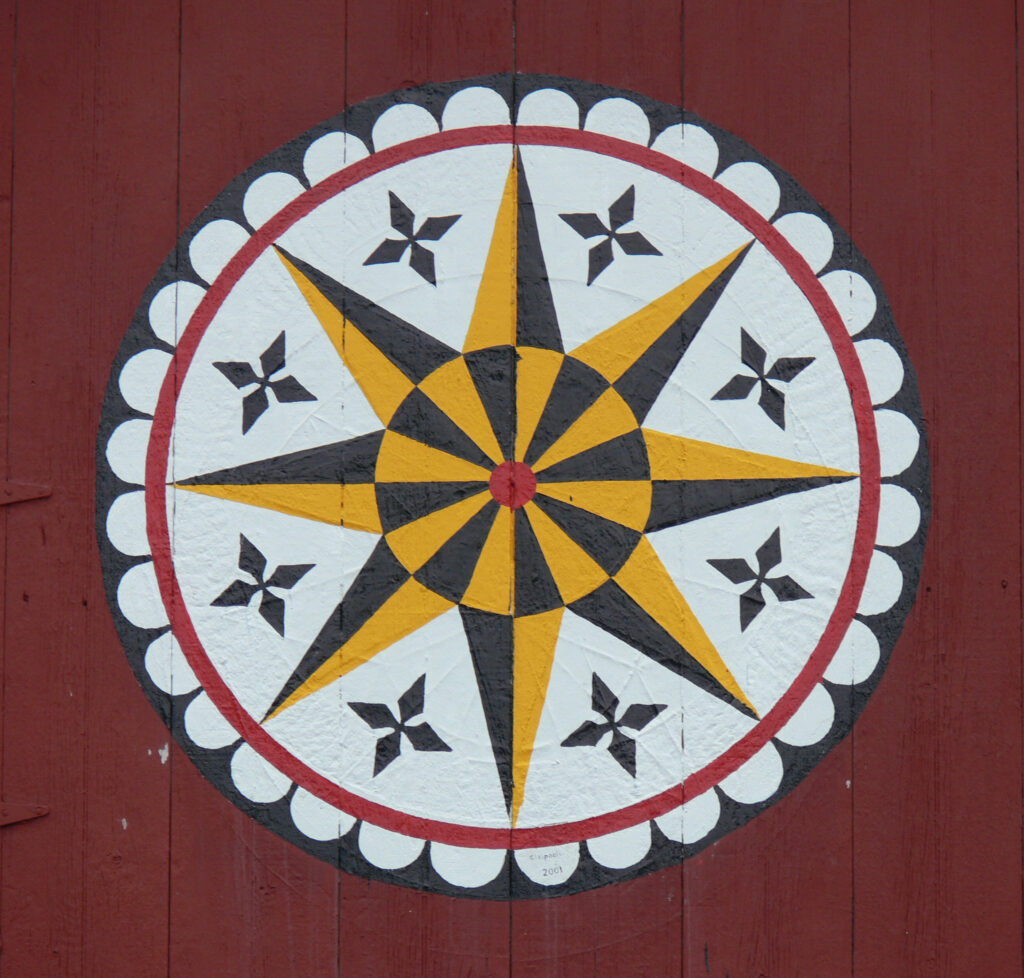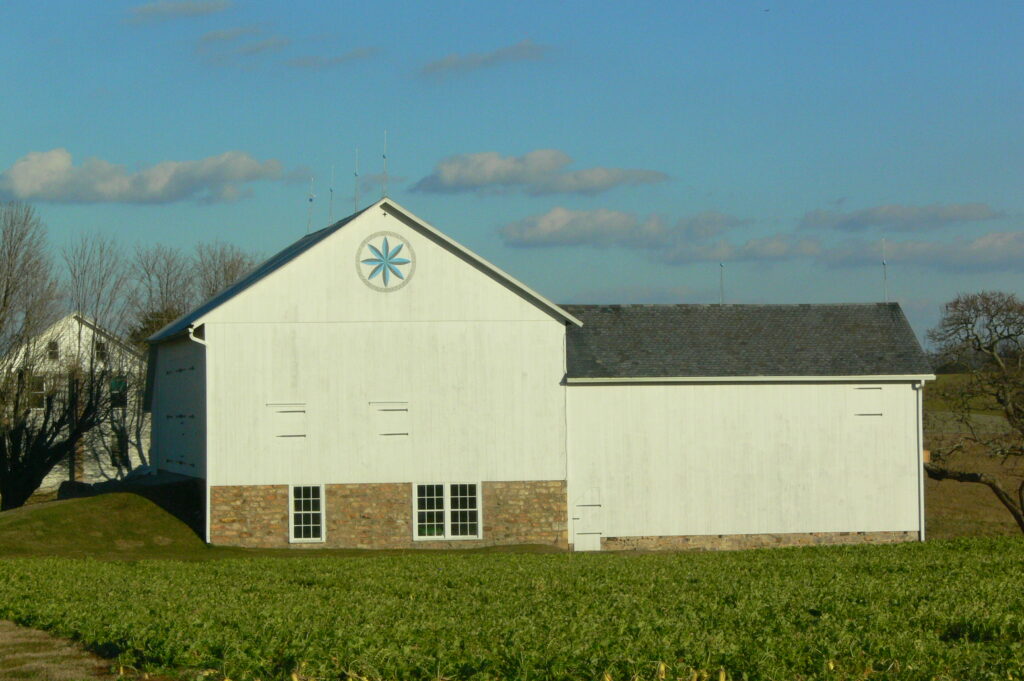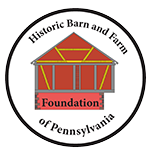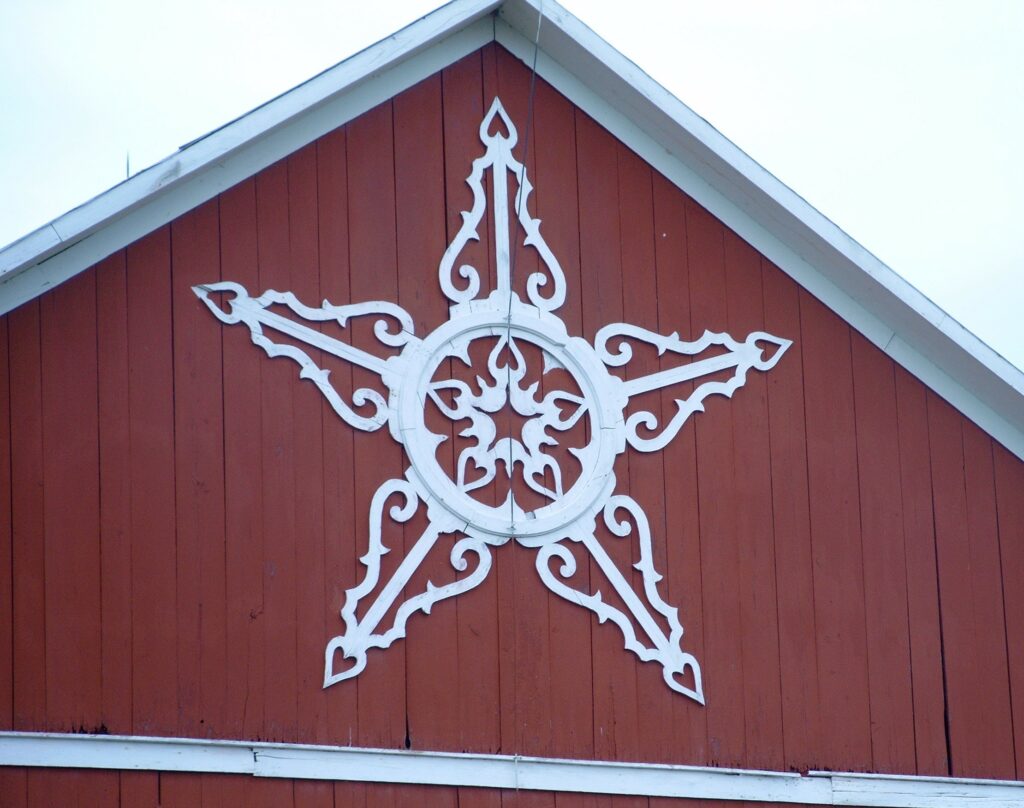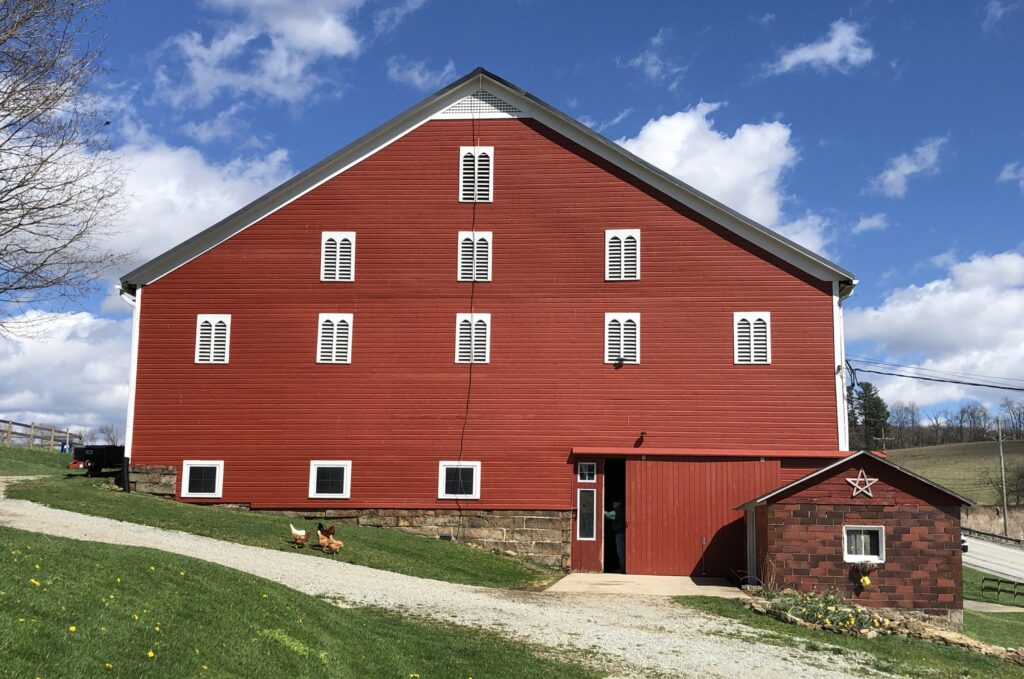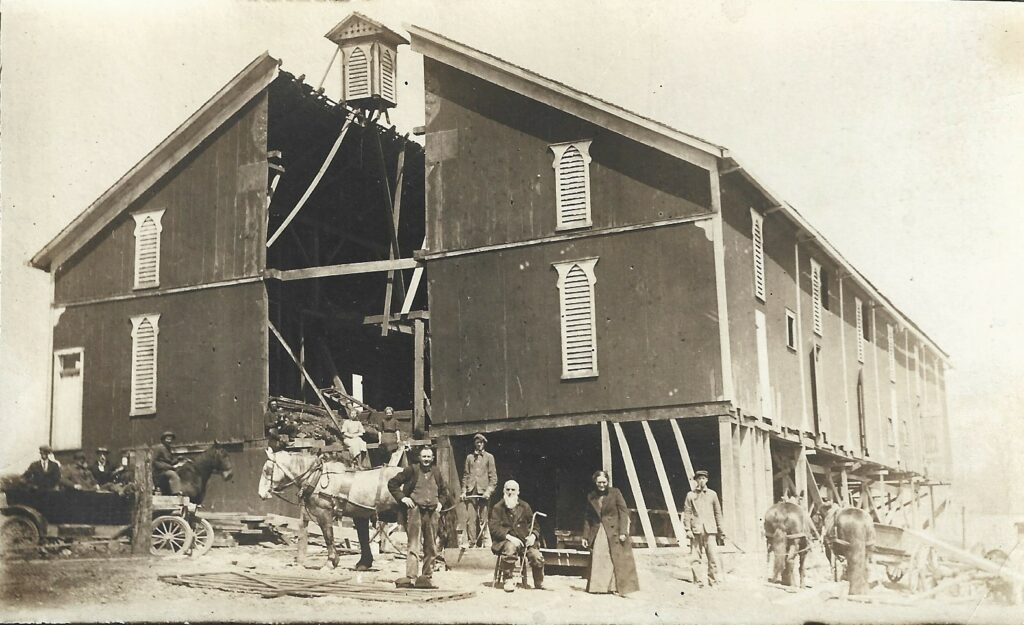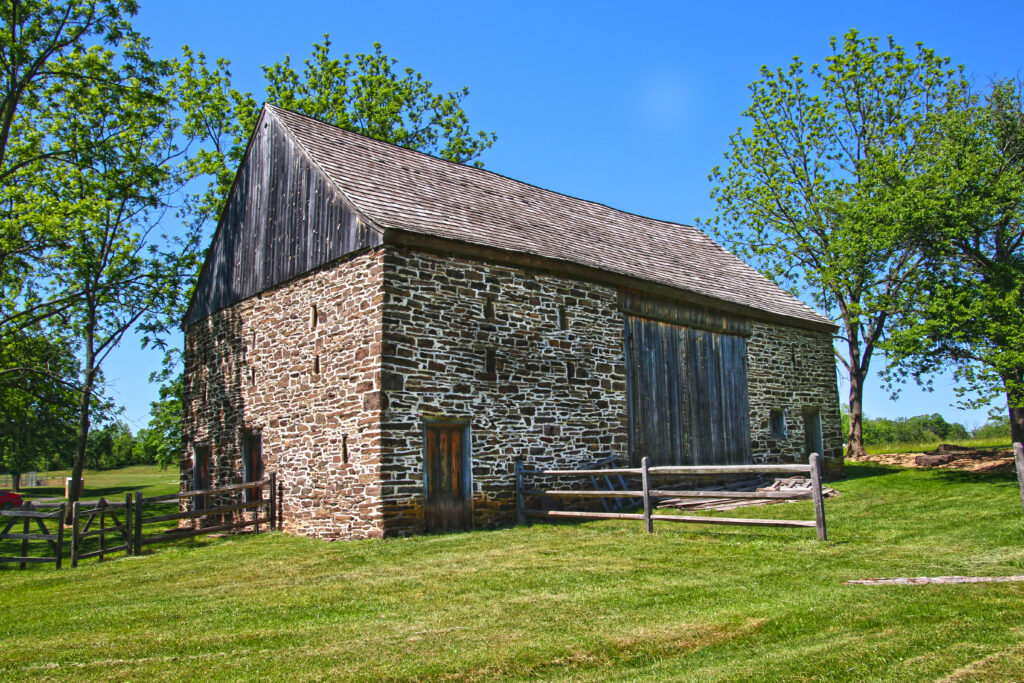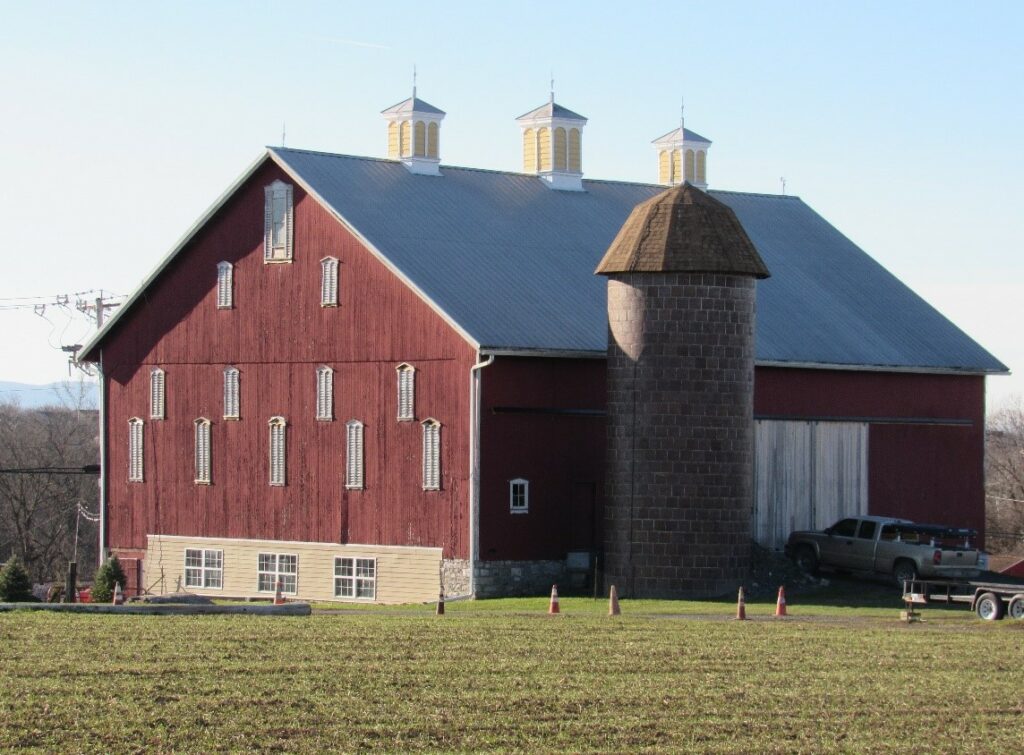June 12 & 13, 2026, HBFF Barn Tour and Annual Meeting
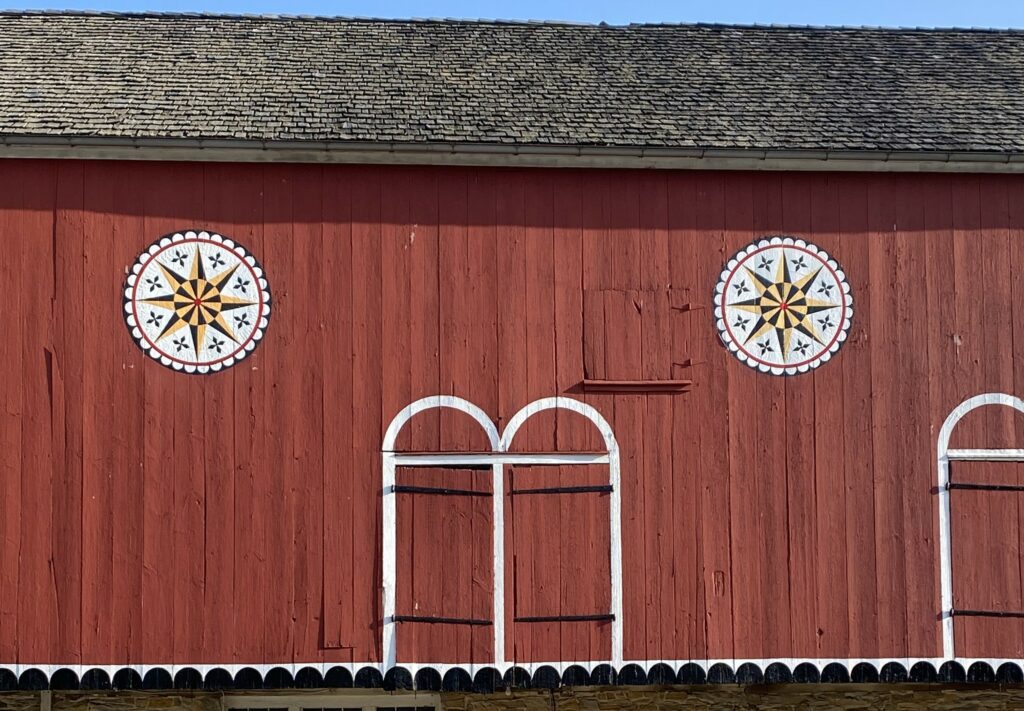
Join us for an exploration of the Decorated Barns of the Pennsylvania Dutch in Northern Berks County—an area with the highest concentration of traditional barn art in Pennsylvania. The Historic Barn and Farm Foundation’s 2026 Barn Tour will be held on Friday and Saturday, June 12 and 13, featuring a unique cultural landscape nestled in the rolling hills south of the Blue Mountain in the East Penn Valley and Allemangel region, home to well-preserved historic farmsteads and robust artistic traditions.
Joining us on the trip will be Eric Claypoole, the region’s foremost barn star artist, who will shed light on the tradition from the creative perspective of a second-generation painter whose work includes over 125 barns throughout the region.
Registration on Friday afternoon will be at the DeLight E. Breidegam Building, Headquarters of the Pennsylvania German Cultural Heritage Center, a folklife museum and research center on the Kutztown University Campus. Participants will have the opportunity to explore cultural exhibitions, and an open-air nineteenth-century farmstead museum, featuring the 1855 Sharadin Barn, an 1814 farmhouse, a one-room school house, reconstructed log houses, and other outbuildings featuring unique collections of Pennsylvania Dutch material culture.
The Friday evening program will include an illustrated presentation on traditional barn decoration and its significance to the region by Heritage Center director, Patrick Donmoyer, who has documented over 500 decorated barns in the region. A Q&A will follow with barn star artist Eric Claypoole.
Saturday’s chartered bus tour will visit seven barns located along a picturesque corridor that features over two dozen decorated barns.
Further details and registration forms will be included in the Spring 2026 Forebay Post. We look forward to seeing you next June!
